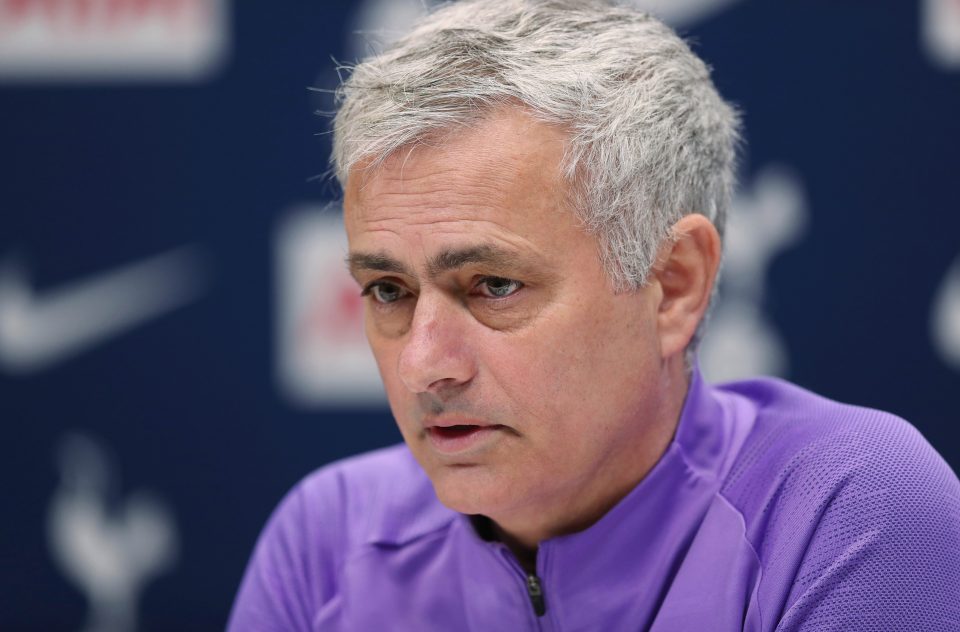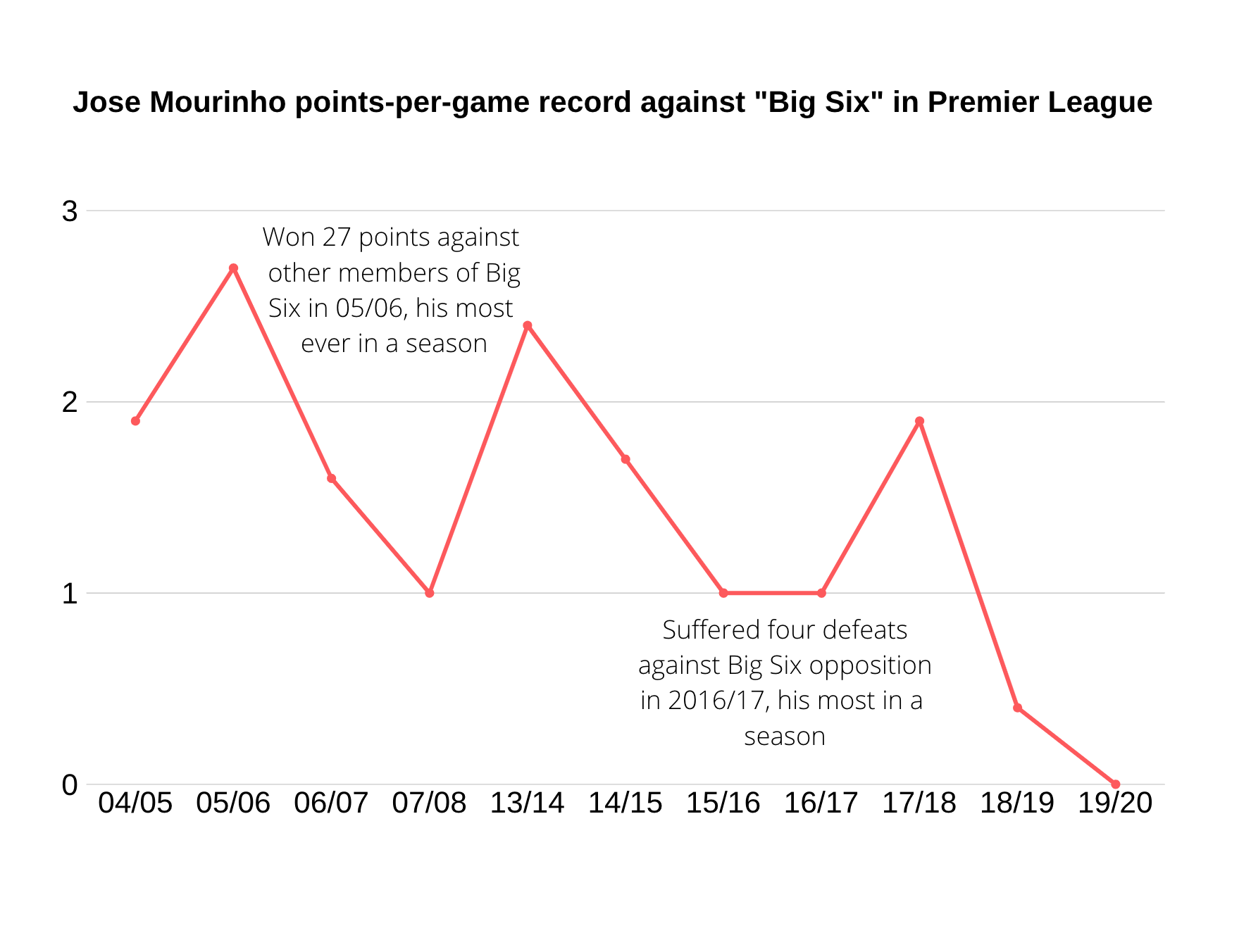
February 1, 2020
Comparisons between Jose Mourinho and Pep Guardiola have been done to death since it became apparent that these two men were among the best managers of the modern generation, due in no small part to their extraordinary title success in the past 15 years, or in Mourinho’s case, almost 20 years.
Certain people prefer the Portuguese’s tactical nouse and his ability to destabilise his opponents whenever he can, whereas others marvel at the beauty and perfection the Spaniard demands of his teams. However remarkable Jurgen Klopp is proving to be since he started in management, it is Mourinho and Guardiola who have dominated European football management.
But, in the last few years, it can be fair to say that the gap between the two has widened. Guardiola has not fallen prey to the Mourinho mind games like he might have done early in his career, and his Manchester City side are far more complete than either Manchester United or Tottenham, who are now managed by Mourinho.
As the two face off once again on Sunday, there is another thing that will bug Mourinho. His ability to win against traditionally “Big Six” opposition in the Premier League. For a manager who is thought of as perhaps the best “big game” manager in the world, the man you would want at the helm ahead of a huge match, his record in the recent past has seen a massive dive.
April 29 2018. A 2-1 victory for United over Arsenal in a match that had the feel of a testimonial. Marouane Fellaini may have scored an injury-time winner to inflict a defeat on Arsene Wenger’s final trip to Old Trafford, but it had little importance or influence on the final league positions of both teams. United were now even firmer favourites to finish second, whereas Arsenal’s hopes of a Champions League place were vanishing quickly.
The reason I bring that match up is because it is the last time Mourinho beat a “Big Six” opposition of either City, United, Chelsea, Arsenal, Liverpool or Tottenham in the Premier League. Since then, he has played eight matches against any one of these teams, and has won just two points out of 24. Six losses, including his last four, is a damning statistic for a manager who prides himself on being able to prepare his team for anything their opposition throws at them.

Looking at the chart above, it just highlights the sudden drop in Mourinho’s teams winning points against their biggest rivals. Of course, this depends on the team he has at his disposal and since the start of the 2016/17 season, it should be said that either United or Tottenham were never expected to dominate the league like City, or now Liverpool. The issues as to why they have not been expected to dominate is another story altogether but still there would be some hope that because of Mourinho’s history, he should be able to win some matches.
In 2005/06, Mourinho compiled his best season for matches against the “Big Six”, as he won nine matches and lost just once. Again, it has to be said that City and Tottenham were nowhere near the type of teams and clubs they are now, but even against teams like United, Liverpool and Arsenal, Mourinho seemed to have the midas touch.
Even on his return to the Premier League with Chelsea in 2013/14, and Chelsea not being one of the certain favourites to win the league, Mourinho was unbeaten in matches against the “Big Six”, winning seven times. The most perfect example of the big game mentality he possessed at the time was the 2-0 victory at Anfield in 2014, which all but ended the Kop’s hopes of a first Premier League title.
But the last few years have brought heartbreak for Mourinho’s teams and he has been unable to break away from this sorry run against big teams. But where did this start and what has happened to one of the game’s great minds in big games?
The 2014/15 season was the last time Mourinho won a league title and there were two distinct halves to that season. The first half was full of swashbuckling football from Chelsea and overpowering any opposition that stood in their way. The second half saw the classic Mourinho pragmatism and defensive stability in order to coast to his third Premier League crown. The turning point in that season, the reason why he did not continue to demand his team play with the attacking verve they showed early, could be accounted to New Year’s Day 2015.
A 5-3 loss away to Tottenham saw Chelsea’s lead at the top of the league cut and they were tied with City not only on points, but also on goal difference. Before that match, against “Big Six” opposition, Chelsea recorded three wins and two draws. After that match, Chelsea recorded just one win and three draws against fellow “Big Six” opposition in the league.
Before that defeat to Tottenham, in all his matches against the “Big Six” in the Premier League, Mourinho had a remarkable 28 wins in 46 matches and lost just four times. This meant on average, he would win 2.13 points per game against these times. But since 1 January 2015 against the “Big Six” in the league, he has only won ten matches against them and records on average just 1.11 points per game against them.
That defeat seems to clearly have had a huge impact on Mourinho’s psyche for big games, whether he will admit it or not. Mourinho has seemed to go within himself and favoured pragmatism more than he ever did, and more than people seemed to class him as. Yes he did like defensive stability first and always wanted that, but he was also almost always an offensive thinking coach too. That is what got him that success in those early years.
Due to the current form and standing of both clubs, City are rightly favourites to take all three points on Sunday and because of Mourinho’s recent record in these types of matches. He may think he needs his side to be pragmatic, but he needs to study his own past and realise that what made him successful was always going for the win, never aiming for a draw.